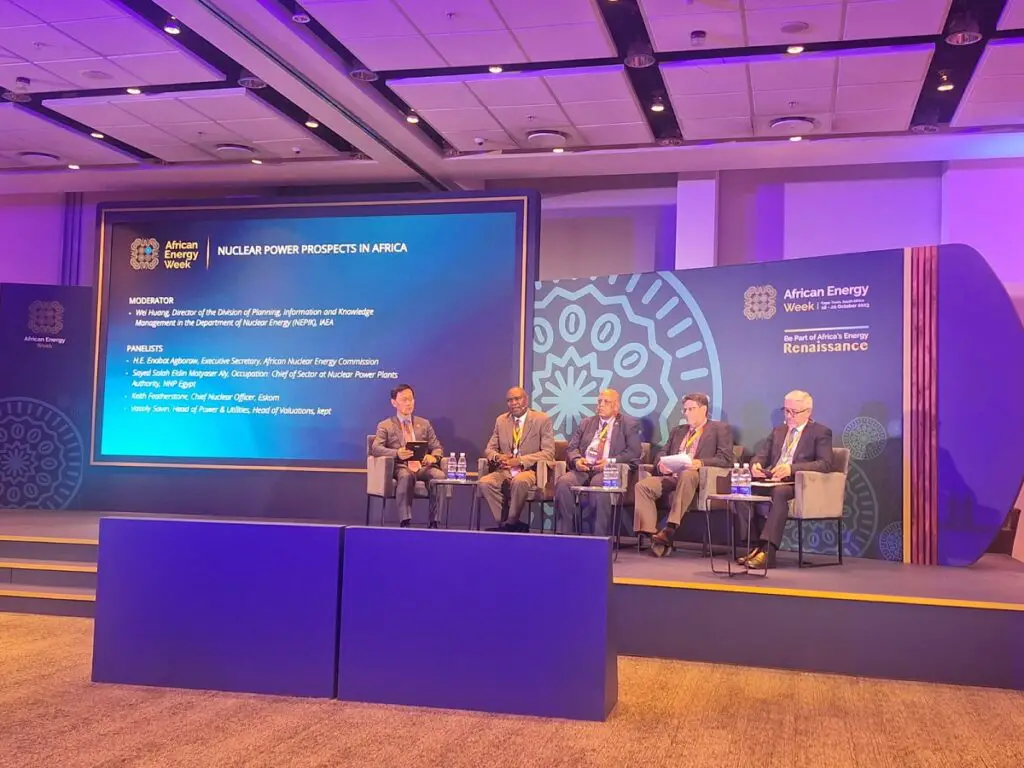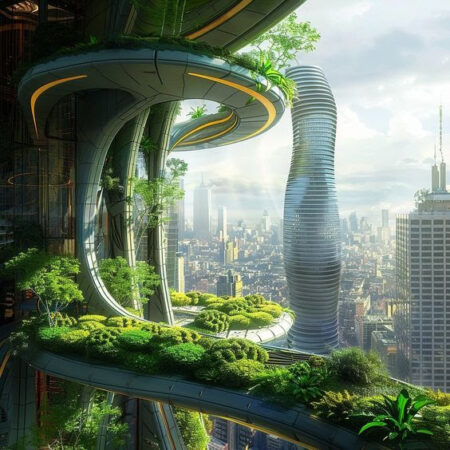- Energy poverty remains one of the biggest body blows slowing growth in many regions in Africa.
- About 650 million people in Africa lack access to electricity, hindering economic growth and human development while worsening the quality of life.
- Experts agree that nuclear energy’s ability to operate efficiently for decades can be a game-changer in plugging the continent’s energy needs.
Energy poverty remains one of the biggest body blows slowing growth in many economies in Africa. Across Africa, energy poverty, which is manifest in over 650 million people lacking access to electricity, is hindering economic growth. This challenge further slows human development besides worsening the overall quality of life.
It is against this backdrop that experts at the African Energy Week in Cape Town delved into a discussion exploring how countries can tap nuclear power to meet Africa’s energy demands and put an end to energy poverty.
Nuclear power can eradicate energy poverty
Globally, nuclear power is emerging as a promising solution. It has a range of benefits that can substantially meet Africa’s energy demands and help eradicate energy poverty.
Enobot Agboraw, who leads the African Commission on Nuclear Energy, pointed out some key reasons for considering nuclear energy. He highlighted that nuclear energy lasts a long time, is cost-effective, and is environmentally friendly.
Agboraw added that more African countries should explore investing in nuclear power. This move will guarantee a reliable energy source for Africa’s fast-growing population.
“Africa realizes that the issue of energy poverty is an emergency. With our population expected to double to 3 billion by 2050, we need to introduce energy solutions fast. Nuclear power, with its long lifespan and reliability, stands out as a key pillar in Africa’s energy transition efforts,” he said.
One of the primary advantages of nuclear power is its longevity. Nuclear power plants have a long operational lifespan, often exceeding several decades. This means that once established, they can consistently generate electricity over an extended period, offering a stable and reliable energy supply.
Given Africa’s rising population and the urgent need to provide power to underserved communities, nuclear energy’s ability to operate efficiently for decades is crucial in plugging the continent’s energy needs.
Addressing the cost of setting up nuclear power plants
Agboraw, however, noted that most countries in Africa may not be in a position to finance such projects on their own. He therefore explained that countries can pool their resources, and therefore reduce financial and proliferation risks.
While the initial investment for building nuclear plants can be substantial, the operational and maintenance costs are relatively low. This cost-efficiency becomes relevant when considering the consistent power generation and energy security nuclear energy provides.
Additionally, by investing in nuclear energy, African nations can reduce their reliance on costly fossil fuel imports. This will in turn create a more sustainable, self-sufficient energy ecosystem. As a result, countries will free up financial resources for other essential services. The savings realised can go into healthcare, education, and infrastructure development projects.
Egypt’s first nuclear energy plant
A number of countries across the continent are developing nuclear power plants. Sayed Salah Eldin Motyaser Aly is NNP Egypt chief of sector. During the forum, he shared updates on Egypt’s nuclear initiatives, as the northern African country sets up its first nuclear energy plant in El Dabaa.
“This nuclear project represents the start of our future industrialization. It has created the opportunity for highly skilled jobs and the development of local industries and Egypt has invested in many initiatives such as the dedicated El Dabaa vocational school, as well as a training program implemented with our strategic partner to ensure we have the skills needed to take this project forward.”
Rosatom, a Russian company, is building the $30 billion nuclear power plant in Egypt. The plant is Egypt’s first major nuclear project and will have four reactors generating 4.8 Gigawatts of power. Its power output will make up about half of Egypt’s electricity.
Rosatom started building the plant’s units one and two units in 2022 followed by the pouring of the first concrete for unit 3 in May 2023. Egypt expects the first unit to work by 2026, and all four by 2030, creating 50,000 jobs. This project is part of Egypt’s nuclear program, which started in 1954.
Read also: Why African economies cannot stop using coal
South Africa’s nuclear power plants
Also speaking during the panel discussion, Keith Featherstone, Chief Nuclear Officer at Eskom, highlighted South Africa’s potential for extending the lifespan of existing nuclear plants. Keith added that South Africa was the only country on the continent that had nuclear energy generation capacity.
He highlighted the opportunities presented by small modular reactors, which had been placed on hold, and the potential use of nuclear energy to repurpose fossil fuel sites, contributing to cleaner energy production.
“I personally am hopeful that the future requests for proposals will allocate more capacity to nuclear as it definitely is one of the most reliable baseload energy options we’ve got, especially in the South African energy sector.”
Emphasizing the need for sustainable energy solutions, Vassily Savin, Head of Power and Utilities at KEPT, noted although African states could rely on its natural resources of sun, wind and water to provide alternative power sources, a recent analysis focused on South Africa and East Africa showed that it would not be enough to allow for industrialization.
Nuclear energy is reliable, low carbon source
“Our modeling shows that achieving this only on renewables is not achievable at all. Africa needs a sustainable grid and sustainable sources of energy. Nuclear energy is a reliable, low-carbon source that could replace retiring fossil fuel plants and allow for the integration of renewables.
“The main bottleneck here is financing. Fossil fuels are not favored by multilateral banks, and surprisingly, neither is nuclear. But if multilateral banks would finance nuclear, it would dramatically help eliminate energy poverty in Africa,” he concluded.
Moreover, nuclear power is environmentally resilient. It generates electricity without producing the harmful greenhouse gas emissions associated with fossil fuels. As a continent that is disproportionately impacted by climate change, Africa stands to gain significantly from adopting cleaner and more sustainable energy sources.
Read also: Rising Temps, Falling Crops: Africa’s Ongoing Climate Change Challenge
How nuclear can help Africa combat climate change
Nuclear power can help reduce carbon emissions. Studies show that nuclear power stands out as a remarkably clean energy source, emitting very minimal greenhouse gases. For instance, its CO2 emissions are only a quarter of what solar power produces. This makes it a crucial player in the global shift toward low-carbon energy.
Unlike fossil fuels, nuclear power releases no harmful particles or gases like nitrogen dioxide, sulfur dioxide, nitrates, or phosphates into the air. Surprisingly, the iconic images of nuclear power plants with towering plumes do not signify CO2 emissions. Those plumes are, in fact, harmless water vapor from the cooling towers. These plumes pose no danger to people as they contain no radioactivity and have no adverse impact on the climate.
The benefits of using nuclear power to address Africa’s energy needs and combat energy poverty are substantial. Its longevity, cost-effectiveness, and environmental resilience make it a viable option for African nations striving to provide consistent and sustainable energy access to their populations.
By investing in nuclear energy, Africa can unlock the potential for economic growth and improved quality of life while contributing to a greener, more sustainable future for the continent.











